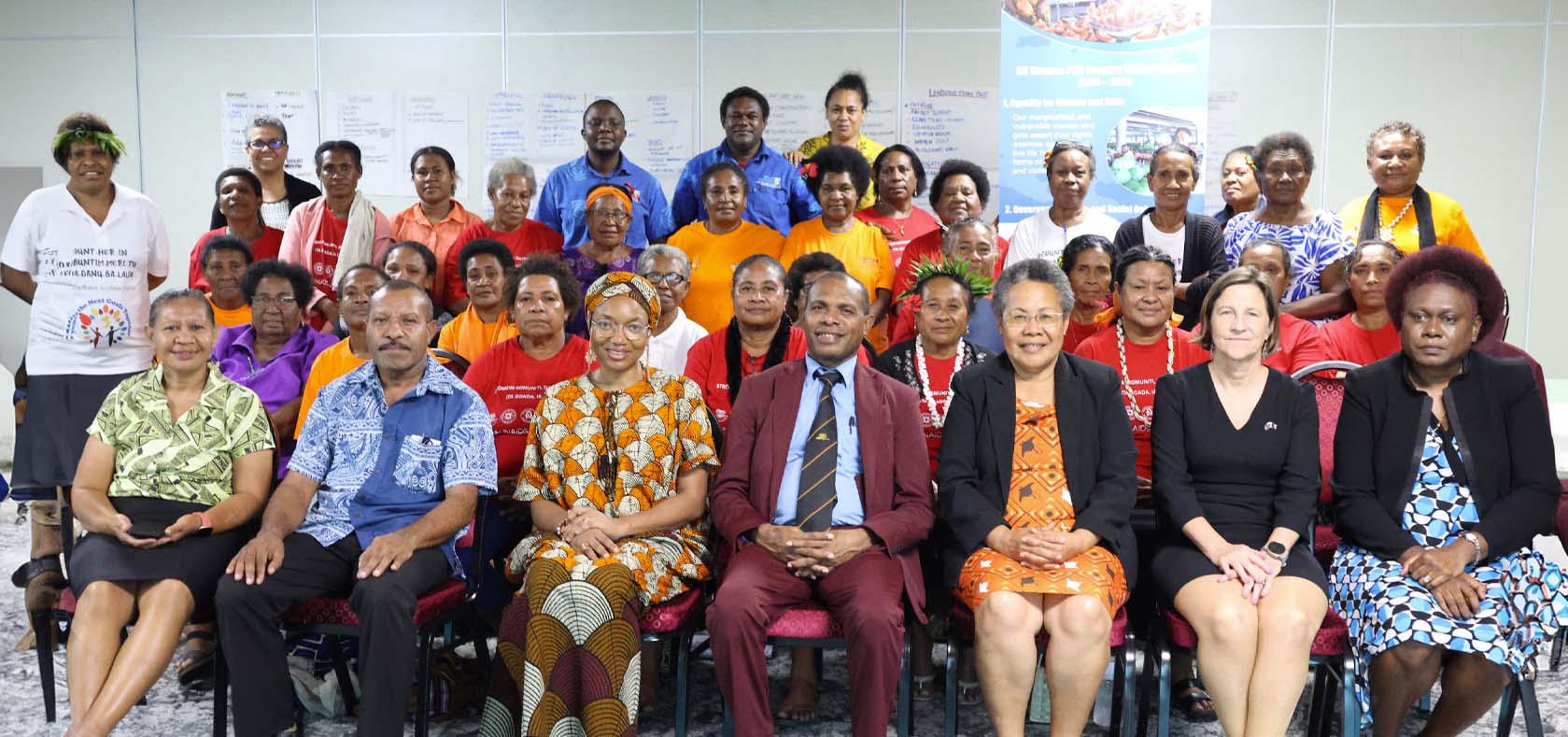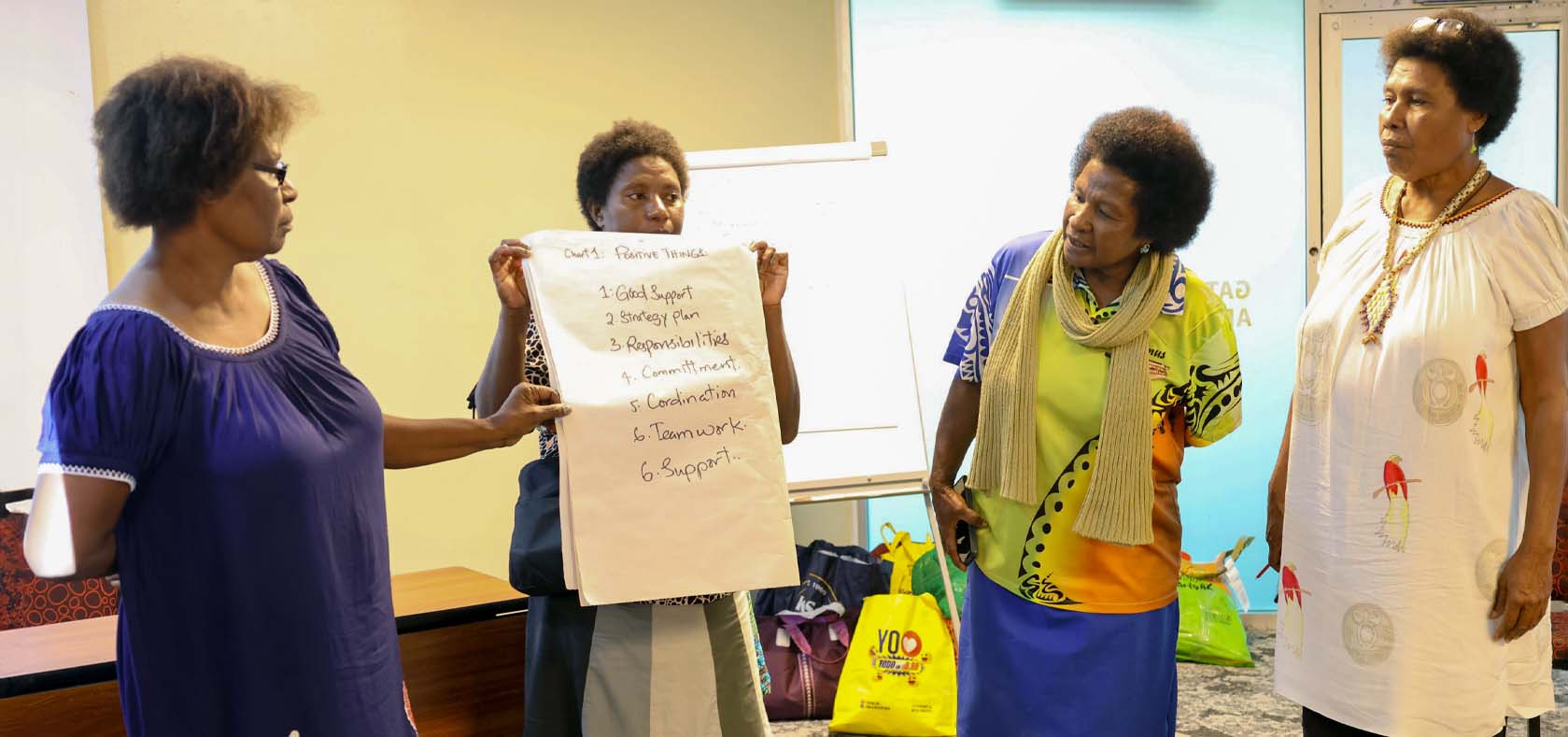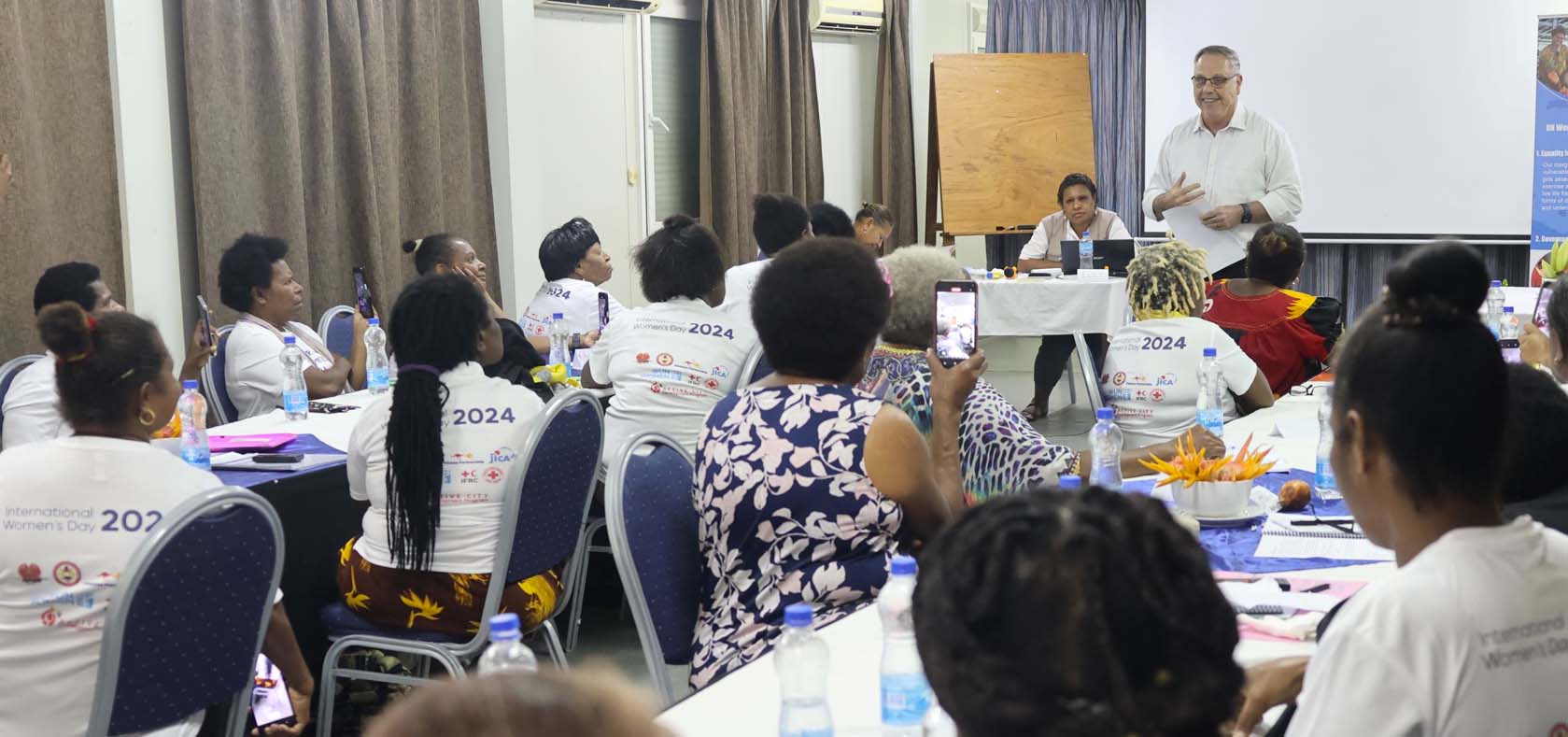UN Women-supported training helps aspiring women politicians across Papua New Guinea
Date:

UN Women’s project Women Make Change* underscores the importance of increasing women’s participation and leadership in politics at all levels. Despite global advancements, women continue to be underrepresented in politics, particularly at the subnational level. In Papua New Guinea (PNG), women encounter significant obstacles, including cultural norms, limited resources, and discrimination. Presently, only three out of 118 members of national parliament are women, and just 2 per cent of subnational ward members.
UN Women is dedicated to advancing gender equality and women’s empowerment in PNG. Recently, UN Women conducted the initiative Political Leadership and Campaign Strategies Training for women leaders across the country’s four regions. This initiative aims to enhance the capacity of women leaders at the subnational level who are planning to contest the upcoming election, enabling them to effectively participate in political processes and elections, some for the first time. The trainings were held simultaneously in Lae for the Momase region, Hagen for the Highlands region, and Port Moresby for the Niugini and Southern regions. A total of 121 women attended. Attendants were equipped with knowledge of political systems, campaign strategies, messaging, and communication strategies. The training also fostered networking and collaboration among participants.
“As the sitting ward member of Ward 8 in Kimbe Urban Local Level Government in West New Britain Province, I have gained invaluable skills and knowledge from this training,” said Paula Golpak, one of the participants of the Niugini Islands region training. “It has equipped us with concrete strategies and a deeper understanding of effective governance, further motivating us to plan and prepare thoroughly for the upcoming election and prioritize the needs of the most vulnerable."


One of the participants for the Momase training in Lae, Osore Baafe from Madang, said: “We are honoured and privileged to have attended this training. It has made us realize our potential to participate in the political leadership race. This training has equipped us with the necessary tools, skills, and resources to prepare ourselves for the election. This is also a stepping stone for those who want to participate in the 2027 national election.”
During the closing ceremony of the Southern region workshop, the national Minister for Community Development, Youth, and Religion Jason Peter encouraged the women leaders to be positive and excel in every aspect of life, including politics.
“Because of my mother, I came this far, and I value the contributions my mum made for me and my siblings,” Peter said. “Her story empowers me and continues to remind me to value women’s empowerment and gender equality principles. You know your background and how far you have come; even some of you are leaders in your own homes, so continue to be the best."
Australian Deputy High Commissioner Joanne Loundes stated: “The Australia and Papua New Guinea Ministerial Forum recently reiterated the need to prioritize gender equality, further expand the gender and social inclusion partnership, and address family, sexual, and sorcery-related violence. We are working on our five-year investment programme, which will fund this particular programme for PNG Women Lead and also support the expansion of women’s leadership in Papua New Guinea.”

UN Women Head of Office Adekemi Ndieli said: “The initiative seeks to promote gender equality in political leadership and strengthen democratic processes by building a diverse and capable cadre of women leaders who can effectively advocate for their communities, implement policies that address local needs, and inspire future generations of women to engage in governance and public service.” The training is part of UN Women’s programme Women Make Change, implemented in collaboration with the Papuan government’s Department for Community Development, Youth, and Religion and with funding support from Australia’s Department of Foreign Affairs and Trade.
A project supported by UN Women is equipping women would-be political leaders with the skills, knowledge and connections to wage more effective election campaigns at national and local levels.